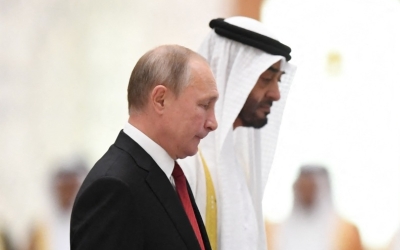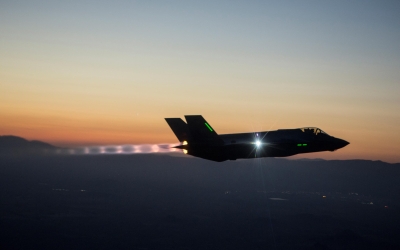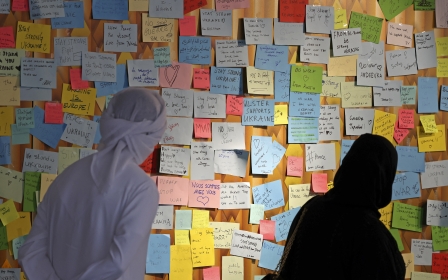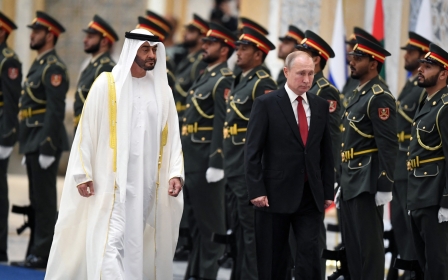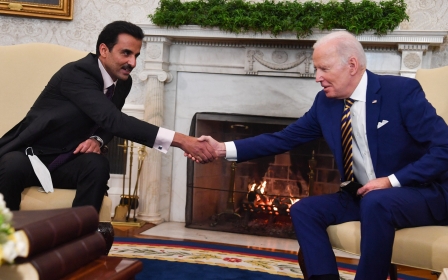UAE-US relations going through a 'stress test', says Emirati envoy al-Otaiba
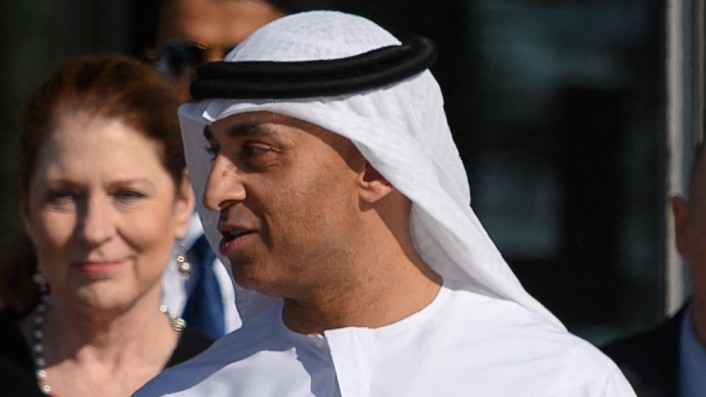
The relationship between the United Arab Emirates and the US is going through a "stress test", the Emirati ambassador to Washington has said in a rare admission of tensions in the countries' strategic partnership.
"It is like any relationship. It has strong days where the relationship is very healthy and days where the relationship is under question," UAE ambassador to the US Yousef al-Otaiba said on Thursday, at a defence event in Abu Dhabi.
New MEE newsletter: Jerusalem Dispatch
Sign up to get the latest insights and analysis on Israel-Palestine, alongside Turkey Unpacked and other MEE newsletters
"Today, we're going through a stress test, but I am confident that we will get out of it and get to a better place."
Otaiba's comments come as the UAE and other Gulf states, including Saudi Arabia, have tried to take a neutral stance between western allies and Russia, their partner in an oil producers' alliance known as Opec+.
After abstaining in a UN Security Council vote against Russia's invasions of Ukraine last Friday, the UAE this week supported a similar resolution at the UN General Assembly.
That vote, however, was non-binding and less consequential than the first vote and is unlikely to soften the impact of the original stance Abu Dhabi took while it held the presidency of the Security Council.
Otaiba added that the future of UAE-US ties would be driven by the private sector, not the US government, in terms of creating jobs and technology.
"If we wait for the two governments to figure this out and take the lead, we are going to be behind. We need our private sector and the US private sector to be the cheerleaders for how this partnership develops for the future," the envoy said.
Unease and frustration
Just a little over a year ago, the UAE's relationship with the US was as strong as it had ever been. Under former President Donald Trump, the UAE had signed the US-brokered agreement to normalise ties with Israel, a landmark move for Abu Dhabi that reversed a long-standing position against normalisation with Israel in the Arab world.
Soon after, the US announced a massive $23bn weapons deal that would see the UAE receive the coveted F-35 advanced fighter jet, of which Israel is the only country in the Middle East to have obtained.
But in recent months, the UAE has signalled unease over what it perceives as Washington's declining commitment to the security of US partners in the region.
The F-35 deal has yet to be finalised, with the UAE reportedly showing frustration by the slow pace and conditions related to the sale.
In December it said it would suspend discussions on the sale, with key sticking points relating to the country's relationship with China, including the use of Huawei's 5G technology.
The UAE has also recently been pushing for the US to designate Yemen's Houthi rebels as a foreign terrorist organisation - a designation made by Trump but rescinded by Biden. So far, the White House has refrained from doing so, and instead imposed targeted sanctions on a Houthi financing network.
At the same time, Abu Dhabi has deepened ties with Moscow and Beijing. According to Bloomberg, UAE state investment funds have stakes in Russian companies and have strategic ties with Russia's sovereign fund, holding onto around $3bn in assets.
Some UN diplomats also linked the UAE's abstention to condemn Russia with a vote a few days later when Russia backed a UN arms embargo on Yemen's Iran-aligned Houthis, who have launched drone and missile strikes on the UAE and Saudi Arabia this year.
Both the UAE and Russia denied any deal was made, but a western diplomat told Reuters that Abu Dhabi "regard[s] the US response as timid", referring to the fact that Washington has yet to designate the group.
Middle East Eye delivers independent and unrivalled coverage and analysis of the Middle East, North Africa and beyond. To learn more about republishing this content and the associated fees, please fill out this form. More about MEE can be found here.


